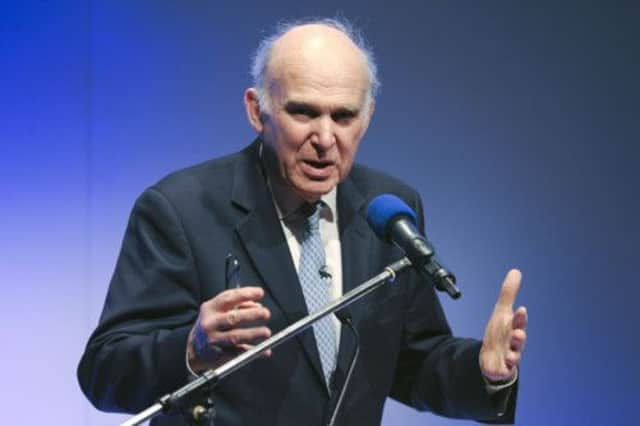Leaders: We must remain focused on Afghanistan campaign | Cable overstepped the mark


For some time, there has been a danger that Afghanistan slips from our radar – given the declared intention to pull out British combat troops by the end of 2014, leaving a much smaller number to assist the Afghan government security forces. The temptation is to think that this is a war which is behind us and is no longer a pertinent concern.
Yesterday’s news is the most brutal possible antidote to any such complacency. Prime Minister David Cameron was right to say, as he did yesterday, that the country has paid a heavy price for its involvement in Afghanistan. Regardless of one’s views on the conflict, this is something on which we can all surely agree.
Advertisement
Hide AdAdvertisement
Hide AdThe deaths should serve to sharpen our focus on our current involvement in Afghanistan, and on our responsibilities both to that country’s governance and to the safety of our troops.
The decision to withdraw is a correct one. But it is also correct that we do not leave the Afghan security services in full control until they are ready and equal to the task. It would be the most perverse outcome if we were to threaten the already precarious peace we have helped build in order to make an overly-hasty exit. That would be to show disrespect to the sacrifice of all those who have given their lives in the dust of Helmand province over the past decade.
A question must be asked, however, about the nature of the work in which British troops will be engaged in the long wind-down to the end of next year. It would make sense, as front-line duties are increasingly taken over by Afghan troops and police, for our soldiers to take a less visible role with, commensurately, less risk. We must do all we can to avoid unnecessary danger to the troops who remain in this final phase. In military strategy, withdrawal can be one of the most dangerous manoeuvres.
With that in mind, one of the most upsetting aspects of yesterday’s deaths was that the soldiers killed were travelling in a heavily-armoured Mastiff 3 troop carrier. The increasing use of such vehicles in Afghanistan was a response to the high number of soldiers killed in Helmand while travelling across dangerous terrain in open Land Rovers that afforded little protection from improvised explosive devices.
It is now all too clear that local insurgents have escalated their bomb-making efforts accordingly, with tragic consequences for these men’s families. This new reality must now be factored into British military commanders’ calculations about how best to deploy British forces over the coming 20 months, and how we can bring the Afghan military mission to the safest possible conclusion.
Cable overstepped the mark
A simple administrative error, perhaps, but Vince Cable’s wayward letter that was sent to the Advocate General rather than to the Lord Advocate was a sign of muddled thinking in more than one regard.
The Cabinet minister’s letter makes remarkable reading. It called for a decision from prosecutors on whether or not Fred Goodwin, the disgraced banker, should be prosecuted for his role in the downfall of Royal Bank of Scotland. “I am very keen,” said Mr Cable, “for a decision to be reached as quickly as possible in order to maintain public confidence in the efficiency of the decision-making process.”
Quite apart from the embarrassment of the letter going to Lord Wallace (who as Advocate General is adviser to the UK government on Scottish legal matters) instead of the Lord Advocate (who is head of the Crown Office in Scotland), Mr Cable’s letter was an eye-opening departure from protocol.
Advertisement
Hide AdAdvertisement
Hide AdDecisions on criminal prosecutions are meant to be the sole concern of the criminal justice professionals who make these judgments in the public interest and in the interests of justice. No politician, perhaps particularly a Cabinet minister, has a right to interfere in the conduct of such deliberations.
A cynic might say Mr Cable’s letter was written in the expectation that it might be made public, to portray the Business Secretary in a flattering light as a no-
nonsense guy who is tough on bankers and wants to see them held to account for the mess they inflicted on the country. That may or may not be the case. What is beyond doubt is that the Lord Advocate was correct in his slap-down yesterday. Mr Cable had no business interfering in this way.